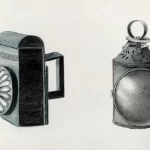Patent Trolls: Understanding the Threat and How to Protect Yourself
- January 31, 2023
- By admin
- Read 5 minutes
Patent Trolls are entities that assert patents without developing the technology, causing a negative impact on businesses and innovators. Learn how to identify, defend and protect yourself from their legal strategies to extract settlements or licensing fees.
Patent trolls, also known as non-practicing entities (NPEs), are entities that acquire and assert patents without the intent to develop or commercialize the technology covered by the patent. They often use the patent system to extract licensing fees or settlements from businesses and individuals who may be using the patented technology.
Patent trolling can have a significant negative impact on businesses and innovators. The threat of a patent troll lawsuit can be costly and time-consuming, diverting resources away from innovation and development. Patent trolls may also stifle competition by preventing other companies from entering a market or by forcing them to spend money on licensing fees. Additionally, the high cost of defending against a patent troll lawsuit can make it difficult for small businesses and startups to defend themselves. The overall effect can be chilling on innovation and investment in certain sectors.
Understanding the Threat
Identifying the signs of a potential patent troll
Potential patent trolls can be identified by several signs. They may send demand letters to companies or individuals using the patented technology, without any prior indication that they were planning to take legal action. They may also file lawsuits against multiple companies in the same industry, or against a large number of defendants. Additionally, they may have a history of acquiring patents solely for the purpose of asserting them against others, rather than using them to develop their own products or services.
Examples of industries and businesses commonly targeted by patent trolls
Patent trolls commonly target a wide variety of industries, such as technology, software, retail, and manufacturing. Businesses that rely heavily on technology, such as software companies, e-commerce businesses, and mobile app developers, are particularly vulnerable to patent troll lawsuits. Additionally, small businesses, startups, and individual inventors are also more likely to be targeted by patent trolls.
The financial and legal consequences of being targeted by a patent troll
Being targeted by a patent troll can have severe financial and legal consequences. The cost of defending against a patent troll lawsuit can be high, and even if the case is ultimately found in the defendant’s favor, the defendant may still be responsible for their own legal fees. Additionally, patent troll lawsuits can be disruptive to a business, diverting resources away from innovation and development, and may also result in a loss of revenue due to forced licensing agreements or settlements.
How Patent Trolls Operate
The patent acquisition process used by patent trolls
- Patent trolls acquire patents from various sources such as bankrupt companies, failed startups, or from individual inventors.
- They often target patents in fields that are currently in demand or those that cover broad and potentially valuable technology.
- They may also acquire patents through bulk purchases or through the formation of patent holding companies.
- Once they acquire a patent, they assert it against businesses and individuals they believe are infringing on the patent without permission.
The legal strategies used by patent trolls to enforce their patents
Patent trolls use a variety of legal strategies to enforce their patents. One common strategy is to send demand letters to businesses or individuals they believe are infringing on their patents. These letters may accuse the recipient of infringement and demand licensing fees or settlements in exchange for not pursuing legal action.
Another strategy is to file lawsuits against businesses or individuals they accuse of infringing on their patents. These lawsuits may seek damages and injunctions to prevent further infringement. Patent trolls may also use the legal discovery process to try and gather evidence of infringement and further bolster their case.
Patent trolls may also use legal strategies such as forum shopping, which is the practice of filing lawsuits in jurisdictions that are known to be more favorable to patent holders. They may also use shell companies or non-practicing entities (NPEs) to hide their true identity and make it more difficult for the accused to fight back.
In some cases, patent trolls may also use the legal concept of “patent privateering” which is licensing patents to operate companies to assert against other companies on the NPE’s behalf.
The role of non-practicing entities in the patent trolling ecosystem
Non-practicing entities (NPEs) are organizations or individuals who own patents but do not use them to produce or sell products or services. They play a significant role in the patent trolling ecosystem by acquiring patents for the purpose of asserting them against others. NPEs are often used as a front for patent trolls, allowing them to hide their true identity and making it more difficult for defendants to fight back in a lawsuit. They also provide a way for patent trolls to generate revenue from patents without having to invest in research and development.
Protecting Yourself from Patent Trolls
- One way to protect yourself from patent trolls is to perform a freedom-to-operate search before launching a new product or service. This can help identify any potential patent infringement issues and allow you to make adjustments or obtain licenses before you begin commercializing your product.
- Another strategy is to implement a patent portfolio management program, which can help you identify potential patent troll threats and implement defensive strategies. This can include building up a portfolio of patents that can be used as counterclaims in the event of a patent troll lawsuit or forming a defensive patent pool with other companies in your industry.
- Obtaining insurance specifically designed to cover patent troll litigation can also help protect your business from the financial consequences of a lawsuit.
- When receiving demand letters, it’s important to seek legal advice before responding. A lawyer can help you to assess the validity of the patent troll’s claims and determine the best course of action.
- Joining or forming industry groups that advocate for patent reform can also help reduce the overall threat of patent trolling. This can include supporting legislative efforts to address patent trolling at the national level.
- Finally, it is also important to stay informed and stay vigilant. This includes monitoring developments in patent law and staying aware of new patent troll tactics and strategies.
admin
Latest Blogs
Blog Categories
- Intellectual Property (IP) Strategy (83)
- Intellectual Property Asset Management (IPAM) (17)
- IP Monetization (4)
- IP News (7)
- Patent Drafting (2)
- Patent Litigation (6)
- Patent Prosecution (8)
- Patenting (18)









No comment yet, add your voice below!